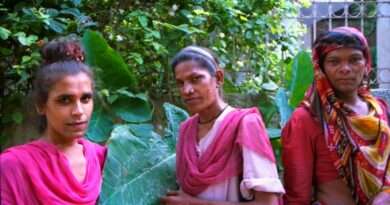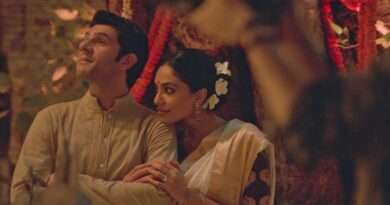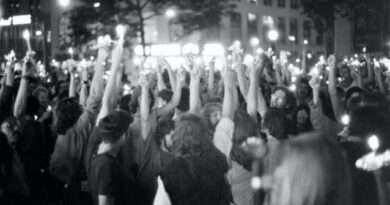Why does marriage equality is treated as a debatable topic by Indian society?
By Astha and Dhruv
“Marriage is not only a question of dignity. It is also a bouquet of rights that LGBTQ people are being denied.”
-M.Guruswamy

It has been three days since the fight for the legalization of same-sex marriage started in full force in the Supreme Court. This fight was given a platform on January 6, with the Supreme Court’s direction for all pending petitions seeking legal recognition for same-sex marriages in different high courts to be transferred to the top court. The five-judge Constitution Bench, headed by CJI Chandrachud, and comprising Justice Sanjay Kishan Kaul, Justice Ravindra Bhat, Justice Hima Kohli, and Justice PS Narasimha, took the endeavor to transfer all pending petitions on the issue in various high courts, such as Delhi, Kerala, and Gujarat. This decision by the Supreme Court is a big step towards the recognition of the basic rights of LGBTQ people. By giving a platform to the fight for legalizing same-sex marriage, the supreme court is acknowledging the fact that queer couples deserve to wield the same rights as those available to heterosexual spouses.
The hearing began on 17 April, with the case for the petitioners being opened by Sr. Adv Mukul Rohatgi: “We are persons of the same sex and we have the same rights as the heterosexual groups of the society. This has been held so and we need not reinvent the wheel. The only stumbling block was Section 377 and our actions were subject to criminality, but now it is gone… the unnatural part is effaced from our statute book and our rights are equal and reflected in Puttuswamy, Navtej Johar, etc., and if our rights are identical, then we should enjoy the full array of rights as under Articles 14, 15 and 21. We cherish and desire the same institution of marriage as it is respected in society. Now, under the domestic violence act, even live-in relationships are allowed…we seek a declaration that we have a right to get married…that right will be recognized by the state as under the special marriage act and the marriage will be recognized by the state after the declaration of this court…because even now we are stigmatized even if we are just holding hands…even after the 377 judgment.”

This heartfelt opening statement by Rohatgi unerringly encompasses the need for the petition to be discussed in the Supreme Court. Despite the decriminalization of homosexuality, there is still widespread discrimination against the queer community. By legalizing same-sex marriage, the nation will provide legal recognition to same-sex couples, thereby not just endowing them with conjugal rights, but also elevating their social standing in Indian society.
This opening statement was followed by Guruswamy’s argument: “We are denied bank accounts, life insurance, etc., everything. I cannot buy SCBA insurance for my family even though I am an SCBA member…a marriage gives a couple these bouquets of rights. I cannot nominate my life partner for life insurance…and people like Mr. Kirpal or me will keep coming to this court to redress individual grievances.”
Guruswamy, by delving deeper into the rights same-sex couples ended by being excluded from the legal institution of marriage, brings a pragmatic turn to the debate and explicates how legalization will make the quality of life of same-sex couples better.
Guruswamy’s statement was followed by a discussion on gender, the transgender act, and personal laws, while the opposition asserted that legalizing same-sex marriage would be unjust as it would not be accepted by society. The idea of unacceptability acts as a major contention for those opposing same-sex marriage, along with that of same-sex marriage being an urban elitist concept. These contentions on the opposition’s side clearly stem from a lack of understanding and the lack of willingness to accept queerness as it exists today.
This opposition was tackled by Rohtagi: “When Hindu widow remarriage was allowed even then society did not accept it…sometimes the Parliament acts with less alacrity or more alacrity…here we have moved ahead…the only stumbling block was 377 and then the mindset…377 is gone and the rest that is being argued here is the mindset and that is why the other side has called this an urban elitist concept.”
After the discussion on elitism, the bench, on the second day, moved on to the personal experiences of the petitioners involved. “My client, a transgender woman, Zainab Patel, was disowned by her family, and left to beg on the streets, but today she is the director of KPMG-all by herself. For her to be branded an “urban elitist” shows an absolute lack of grace”, said Adv KV Vishwanathan.
Rohtagi’s statement moves the debate forward swiftly, and the argument presented against the labeling of the petition as elitist by Vishwanathan highlights some highly crucial points. Rohatgi unflinchingly clarifies that the only reason same-sex marriage is being termed an elitist concept is that the opposition isn’t willing to accept or understand it. It is also made clear that the legalization, if enacted under the Special Marriage Act, will have a positive impact not just on urban, upper-caste same-sex couples, but lower-caste queers as well, thereby completely debunking the opposition’s argument.

Another important rebuttal against the label of elitism was given by Sr. advocate Raju Ramachandran: “My petitioner Kajal is a Dalit woman from a town in Punjab, her partner Bhavna is an OBC woman from a town in Haryana. Bhavna works as an accountant, Kajal works in a bakery. They don’t have understanding families. They had to go to the Delhi High Court for protection from their own families. The government’s assumption that they are the “Urban Elite”, is careless and insensitive. Marriage is not only a gateway to different socio-economic rights but it is a protection from their own parental families & society.”
This argument skilfully cinches the rebuttal against the opposition and makes it clear that baseless arguments without factual backup will not be treated kindly by the petitioners.
From the government’s side, Solicitor General Tushar Mehta questioned how this issue could be decided on by five individuals, i.e., the judges. He also argued that rightfully only the parliament should have the power to consider the socio-legal issue of marriage. The judges, however, disregarded the government’s objections and asserted that they will study how the Special Marriage Act of 1954 (which allows marriages between people of different castes and religions) could be altered to include LGBTQIA+ people. The side supporting the legalization has finished presenting its arguments, and the opposition will be given a chance to speak next week.
References:-
Quotes- and Bench- live hearing
Photos- screenshot-Live Law- Live Streaming



